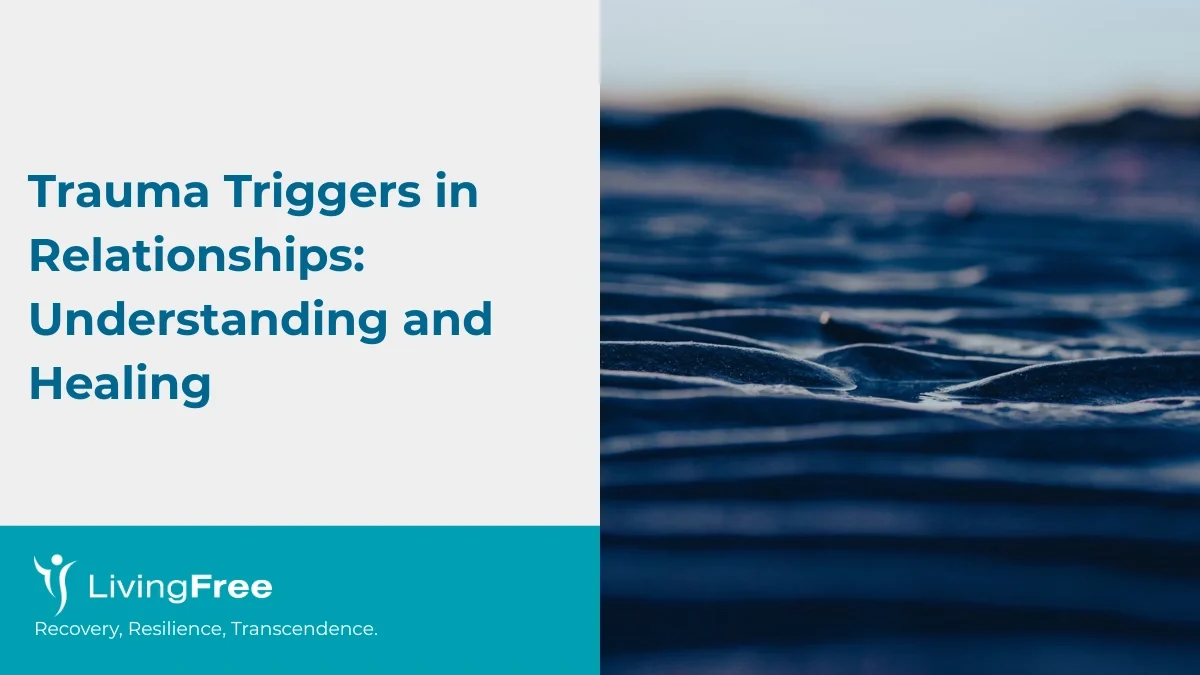Relationships are often where our deepest wounds and our deepest healing take place. For trauma survivors, relationships can also be where triggers appear most often. A look, a tone of voice, or even silence can bring back overwhelming feelings of fear, shame, or abandonment.
At Living Free, we understand trauma triggers not as “overreactions” but as the nervous system’s attempt to keep us safe. By exploring how triggers affect relationships, and how they can be healed, we can begin to restore trust, connection, and resilience.
What Are Trauma Triggers?
A trauma trigger is any stimulus, external or internal, that activates memories, sensations, or emotions linked to past trauma. Triggers do not need to resemble the original event. They only need to remind the nervous system of danger.
Common examples in relationships include:
- A raised voice reminding someone of past aggression.
- Feeling ignored or dismissed echoing childhood neglect.
- Arguments triggering memories of conflict or violence.
- Physical closeness activating memories of past abuse.
Triggers activate the stress response system. The body may shift into fight, flight, freeze, or fawn mode, leading to intense emotions or sudden disconnection.
How Triggers Show Up in Relationships
1. Emotional Reactions
- Sudden anger, fear, or withdrawal in response to seemingly small situations.
- Overwhelming sadness or numbness after disagreements.
2. Communication Breakdowns
- Difficulty expressing needs clearly.
- Avoidance of conversations that feel threatening.
- Escalating arguments due to hyperarousal.
3. Trust and Attachment
- Fear of abandonment or rejection.
- Difficulty relying on others.
- Clinging or distancing behaviors.
4. Body Responses
- Tightness in chest, racing heart, or dissociation during conflict.
- Physical shutdown in moments of intimacy.
The Science Behind Triggers
According to trauma research and the DSM-5, trauma alters both cognition and the autonomic nervous system. Triggers bypass logical thought and directly activate survival pathways in the brain.
Living Free’s six-domain model shows how triggers affect:
- Cognition – “I am not safe,” “They will leave me.”
- Emotion – overwhelming fear, shame, or anger.
- Body and Nervous System – hyperarousal, dissociation, or shutdown.
- Relationships – mistrust, conflict, avoidance.
- Behavior – withdrawing, lashing out, or numbing through addictions.
- Meaning – reinforcing beliefs of being unworthy or unlovable.
Healing Trauma Triggers in Relationships
Healing is possible, but it requires awareness, compassion, and practice.
1. Recognize and Name Triggers
Learning to notice when you are triggered and naming it reduces shame and opens space for communication.
2. Regulate the Nervous System
Grounding techniques, breathwork, and somatic practices help bring the body back to safety.
3. Communicate with Partners
Sharing triggers in safe ways helps partners understand and respond with empathy instead of confusion or defensiveness.
4. Reframe Beliefs
Therapies like CBT and CPT help shift negative cognitions (“I am unsafe,” “They will hurt me”) toward more balanced perspectives.
5. Repair Relationships
Individual therapy, couples therapy, or IFS (parts work) can rebuild trust and reduce the impact of triggers on intimacy.
Living Free’s Approach
At Living Free, we integrate psychotherapy with body-based practices to address trauma triggers across all six domains of recovery. This means:
- Working with thoughts and beliefs through CBT, CPT, or EMDR.
- Supporting the nervous system through somatic coaching and breathwork.
- Restoring trust and connection through relational therapy and IFS.
- Building sustainable habits with psychoeducation on sleep, nutrition, and exercise.
Related Articles:
Why Eliminating Triggers Doesn’t Work in Trauma Recovery
Can You Have PTSD Without Knowing It?
Conclusion
Trauma triggers in relationships can feel overwhelming, but they are not a sign of weakness. They are signals from the nervous system that healing is still needed. With the right support, triggers can become opportunities, not for repeating the past, but for creating new patterns of safety, connection, and growth.
If you or your partner are struggling with trauma triggers, contact us to begin your healing journey with Living Free.


